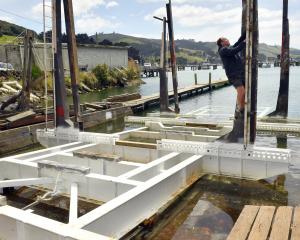
The Albany Street School, Dunedin. — Otago Witness, 26.8.1924
To help mothers and save babies
The Plunket nurses for North and Central Dunedin districts reported for the month ended July 31: Babies on the list 620; babies breast-fed (including partly) 129; new cases for the month (babies only) 30; new cases breastfed (including partly) 29; visits to Plunket rooms, Stuart street (adults 212, children 203), 415; visits to Plunket rooms, Roslyn (adults 60, children 65), 125; advice given to expectant mothers 8; visits paid to homes 331; bottles of humanised milk sent out from the Taieri Dairy 6395.
Beethoven wouldn’t stand for it
At Tahuna Park on Saturday the Rugby League game was prefaced by a ceremonial playing of the National Anthem, during which the footballers, already in the field, threw the ball about, and a few hundred potential barrackers behaved as though the band were discoursing rag-time. Disloyalty no; thoughtlessness merely, — ignorance and bad taste. When "God save the King" is played or sung there are three things that should be remembered and are usually forgotten: first, that it is the sign and symbol of nationality, and in that appealing to our self-respect, if we have any, and to pride of race; next, that it is a prayer; thirdly and lastly, that it is great music. At any rate Beethoven was of that opinion. "I must show the English what a blessing they have in God save the King," he said, whereupon he wrote seven variations on it for the piano, and introduced it into his Battle Symphony. — by ‘Civis’
The real McCoy, out of the blue
Auckland: "When I married again I had the full intention that McCoy was dead and buried drowned in a whaling boat off Norfolk Island, but afterwards he came behind me in the street and slapped me on the back, and I says, ‘Why, I thought you were dead and buried’." That was the statement sobbed out by a woman in the Supreme Court during the hearing of a petition for divorce. The circumstances were of an unusual nature. ln 1905, believing McCoy to be dead, respondent went through the form of marriage with another man. She had received a cutting from a newspaper stating that McCoy had been drowned. Evidently it referred to another man of the same name, for McCoy turned up again— ODT, 16.8.1924












